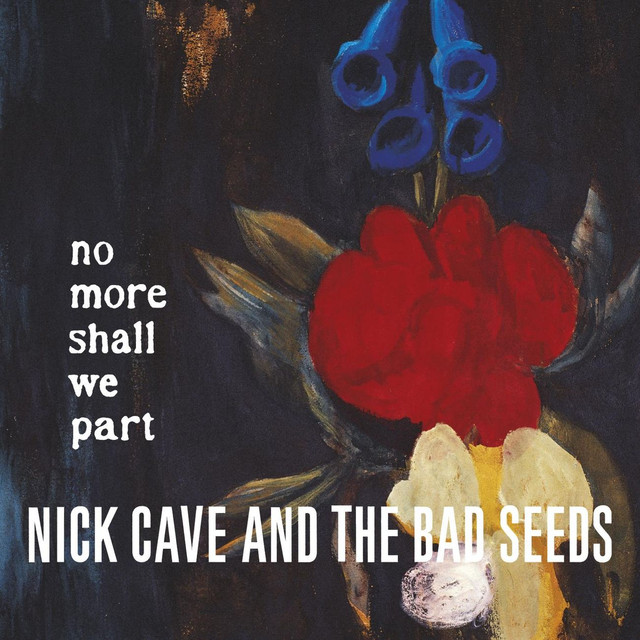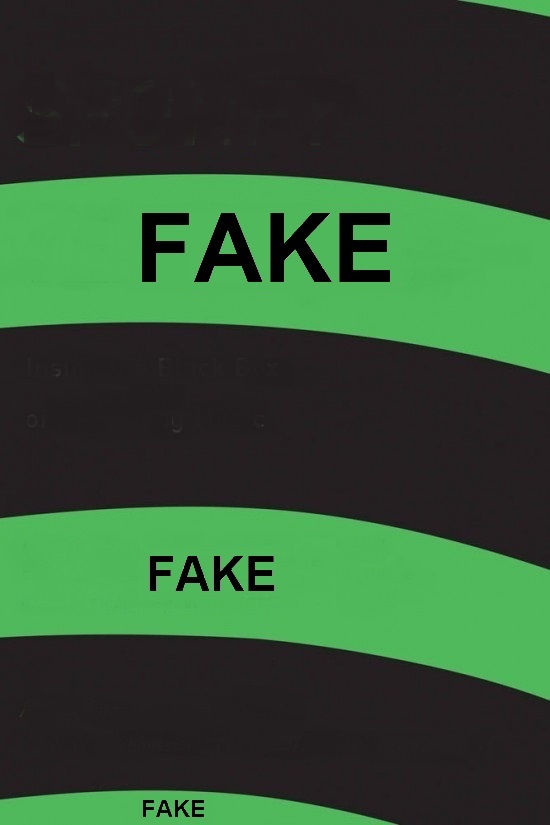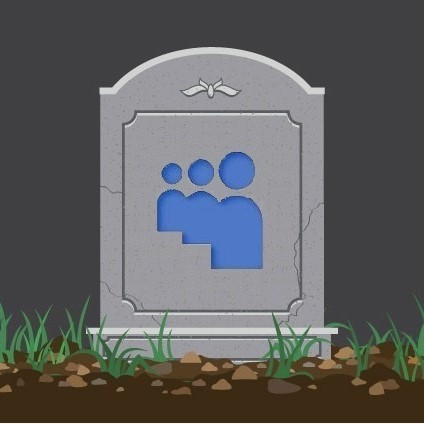 We are living in worrying times with unpredictable world leaders who are quick to take offence and lacks impulse-control. Long ago, I saw the screen adaption of Stephen King's "Dead Zone" with Christopher Walken as the central character. Walken plays a schoolteacher, who awakens from a coma to find he has psychic powers. Despite Walken's extraordinary acting skills it was Martin Sheen (President Stillson) that made an imprint, because of his ghastly un-presidential qualities. Ironically, Martin Sheen later came to play president Josiah (Jed) Bartlet in the television series "The West Wing". The Stillson and Bartlet characters couldn't be more far from each other. "Dead Zone" made a long-lasting impression on me. I still rembember the nuclear button scene. This is how I imagined that the world would end. In flames. Here it the dialogue (it's more of a monologue) in its entirety.
We are living in worrying times with unpredictable world leaders who are quick to take offence and lacks impulse-control. Long ago, I saw the screen adaption of Stephen King's "Dead Zone" with Christopher Walken as the central character. Walken plays a schoolteacher, who awakens from a coma to find he has psychic powers. Despite Walken's extraordinary acting skills it was Martin Sheen (President Stillson) that made an imprint, because of his ghastly un-presidential qualities. Ironically, Martin Sheen later came to play president Josiah (Jed) Bartlet in the television series "The West Wing". The Stillson and Bartlet characters couldn't be more far from each other. "Dead Zone" made a long-lasting impression on me. I still rembember the nuclear button scene. This is how I imagined that the world would end. In flames. Here it the dialogue (it's more of a monologue) in its entirety.
President Stillson: "Do it, General."
Five Star General: "You're insane. I won't."
President Stillson: "Do it! Put your hand on the scanning screen, and you'll go down in history with me!"
Five Star General: "As what? The world's greatest mass murderers?"
President Stillson: "You cowardly bastard! You're not the voice of the people! I’m the voice of the people. The people speak through me, not you! It came to me while I slept, Sonny…my destiny. In the middle of the night it came to me. I must get up now, right now and fulfill my destiny! Now, put your goddamn hand on that scanning screen, or I'll hack it off and put it on for you! Do it!"
Five Star General: "May God forgive me."
President Stillson: "Congratulations, General."
Sonny Elliman: "Complete the sequence, Mr. President."
President Stillson: "My destiny!"
President Stillson: "Thank you, Sonny."
President Stillson: "Let them come up."
Vice President: "This is not necessary Mr. President, we have a diplomatic solution."
President Stillson: "Mr. Vice President, Mr. Secretary, the missiles are flying. Hallelujah. Hallelujah."

 Artists sometimes behave erratically. How else could you explain why a song is not included on an album. I'm not referring to songs in general, but to outtakes with extraordinary qualities. There are some flagrant examples: "Blind Wille McTell" was left out from Bob Dylan's album "Infidels", "Panic" was left out from The Smiths groundbreaking album "The Queen is Dead" and "Love Will Tear Us Apart" was left out from Joy Division's second and last album "Closer". According to Occam's razor "simpler solutions are more likely to be correct than complex ones". Let's apply this problem-solving principle. The artists may have a vast well of songs to choose from. Yes, but this doesn't explain why the extraordinary song didn't make it. An even more simple explanation is that artists who normally are overly self-critical, have good judgment and impeccable taste sometimes make mistakes. I will not elaborate any further. This explanation will do. Then, the biggest mistake must be leaving out "Grief Came Riding" from Nick Cave's epic album "And No More Shall We Part" released in 2001. The outtake appeared on a bonus CD packaged with a limited edition of the album when it was first released. It would later be included on the 2005 compilation "B-Sides & Rarities", the 2011 re-release of "No More Shall We Part" and the bootleg cd "The Boatman's Call Outtakes" (which means that the bootlegger made a mistake). The latter version is slightly different (and better). The lo-fi piano-based song fits perfectly into the theme and atmosphere of the album. Personally, I would have placed it between "And No More Shall We Part" and "Hallelujah". The lyrics are, as always, of the highest standards. "I started thinkin' about London / And nothing good ever came from this town / And if the Thames weren't so filthy / I would jump in the river and drown". But, what about outtakes in the gothic country genre? Normally, there a few alternative or demo versions, but generally no outtakes. Songs are more likely to be recorded between albums. However, one rare example of an outtake is "Mechanically Separated Blues" that was left out from Antic Clay's classic double album "Hilarious Death Blues" in 2007, read more here (opens in a new window). Of course, there's a simple explanation for the absence of outtakes. There's no time and money for the luxury of endless recording and studio time.
Artists sometimes behave erratically. How else could you explain why a song is not included on an album. I'm not referring to songs in general, but to outtakes with extraordinary qualities. There are some flagrant examples: "Blind Wille McTell" was left out from Bob Dylan's album "Infidels", "Panic" was left out from The Smiths groundbreaking album "The Queen is Dead" and "Love Will Tear Us Apart" was left out from Joy Division's second and last album "Closer". According to Occam's razor "simpler solutions are more likely to be correct than complex ones". Let's apply this problem-solving principle. The artists may have a vast well of songs to choose from. Yes, but this doesn't explain why the extraordinary song didn't make it. An even more simple explanation is that artists who normally are overly self-critical, have good judgment and impeccable taste sometimes make mistakes. I will not elaborate any further. This explanation will do. Then, the biggest mistake must be leaving out "Grief Came Riding" from Nick Cave's epic album "And No More Shall We Part" released in 2001. The outtake appeared on a bonus CD packaged with a limited edition of the album when it was first released. It would later be included on the 2005 compilation "B-Sides & Rarities", the 2011 re-release of "No More Shall We Part" and the bootleg cd "The Boatman's Call Outtakes" (which means that the bootlegger made a mistake). The latter version is slightly different (and better). The lo-fi piano-based song fits perfectly into the theme and atmosphere of the album. Personally, I would have placed it between "And No More Shall We Part" and "Hallelujah". The lyrics are, as always, of the highest standards. "I started thinkin' about London / And nothing good ever came from this town / And if the Thames weren't so filthy / I would jump in the river and drown". But, what about outtakes in the gothic country genre? Normally, there a few alternative or demo versions, but generally no outtakes. Songs are more likely to be recorded between albums. However, one rare example of an outtake is "Mechanically Separated Blues" that was left out from Antic Clay's classic double album "Hilarious Death Blues" in 2007, read more here (opens in a new window). Of course, there's a simple explanation for the absence of outtakes. There's no time and money for the luxury of endless recording and studio time.
 The core quality of good science is brutal honesty. This research is naked brutality, allright. The research team (which Spotify by the way tried to silence, read more here - opens in a new window) have published ground-breaking research results in their new book, "Spotify Teardown". The team have closely mapped Spotify's algorithms, through algorithm auditing, and studied how it works. And, if you think the number of streams shows how popular an artist is, well think again. In one of many experiments the researchers tried to put up a song (cacophonic noise) on Spotify using aggregators. Some aggregators rejected it (for good reason), but when the aggregators were paid the noise suddenly became music and accepted by Spotify. This shows how the Spotify system works and also how it can be manipulated. Fake it 'til you make it. The research team used bots to play the song a thousand times and made it quite popular. The researchers raised the question of how many of the Spotify users are real people? The number of users may in fact be inflated by bots. People or bots, who cares? Of course, Spotify have no incitament to reveal the ugly truth. On the contrary, it would probably be bad for business. I don't think Spotify is losing any sleep or bother to do anything. Instead, they are ripping off investors. Spotify is contaminated with fake artists, fake playlists and fake streams. Fake, fake and fake. And scams. Best known scam hitherto is the so-called "Bulgarian scam" in 2017 where 1 million dollar in royalty were paid out, probably perfectly legal, while it meant stealing money from other artists. Spotify wrote the following in a statement: "We take the artificial manipulation of streaming activity on our service extremely seriously. Spotify has multiple detection measures in place monitoring consumption on the service to detect, investigate and deal with such activity. We are continuing to invest heavily in refining those processes and improving methods of detection and removal, and reducing the impact of this unacceptable activity on legitimate creators, rights holders and our users." Yeah, right. Oh, let me correct myself, please. Best kown Spotify scam hitherto is their reimbursement to artists. This must be a strong contender for the crime of century.
The core quality of good science is brutal honesty. This research is naked brutality, allright. The research team (which Spotify by the way tried to silence, read more here - opens in a new window) have published ground-breaking research results in their new book, "Spotify Teardown". The team have closely mapped Spotify's algorithms, through algorithm auditing, and studied how it works. And, if you think the number of streams shows how popular an artist is, well think again. In one of many experiments the researchers tried to put up a song (cacophonic noise) on Spotify using aggregators. Some aggregators rejected it (for good reason), but when the aggregators were paid the noise suddenly became music and accepted by Spotify. This shows how the Spotify system works and also how it can be manipulated. Fake it 'til you make it. The research team used bots to play the song a thousand times and made it quite popular. The researchers raised the question of how many of the Spotify users are real people? The number of users may in fact be inflated by bots. People or bots, who cares? Of course, Spotify have no incitament to reveal the ugly truth. On the contrary, it would probably be bad for business. I don't think Spotify is losing any sleep or bother to do anything. Instead, they are ripping off investors. Spotify is contaminated with fake artists, fake playlists and fake streams. Fake, fake and fake. And scams. Best known scam hitherto is the so-called "Bulgarian scam" in 2017 where 1 million dollar in royalty were paid out, probably perfectly legal, while it meant stealing money from other artists. Spotify wrote the following in a statement: "We take the artificial manipulation of streaming activity on our service extremely seriously. Spotify has multiple detection measures in place monitoring consumption on the service to detect, investigate and deal with such activity. We are continuing to invest heavily in refining those processes and improving methods of detection and removal, and reducing the impact of this unacceptable activity on legitimate creators, rights holders and our users." Yeah, right. Oh, let me correct myself, please. Best kown Spotify scam hitherto is their reimbursement to artists. This must be a strong contender for the crime of century.
 Holy crap! MySpace lost 12 years of music uploads in a server migration project. The loss could amount to as much as 50 million tracks by 14 million artists. Not only audio files were lost, also photos and videos. In an insensitive statement Myspace wrote "We apologize for the inconvenience". This must be the new low of business speaking points. An honest mistake? Some people question whether the loss was accidental. First, it took a while before Myspace admitted the loss. Second, files uploaded more than three years ago were lost (not any new uploads). Third, the migration appears to have been carried out in a very amatuerish way. Every decent migration project have a procedure for restoring data if anything goes wrong, like a backup. Apparently, not this time. Myspace was founded in 2003 and peaked already in 2006. All downhill from there and now (almost) dead and buried in the internet graveyard. However, Myspace still played a role as an archive. I don't care much for mp3-files, so why I'm a writing this blog post? The only reason is that some of the gothic country heritage were lost. In its prime Myspace was a popular platform offering an interactive, user-submitted network of friends, personal profiles, blogs, groups, photos, music and videos. Myspace has been useful for me in triangulating the genre. I've found first-hand information, rare photos and some demos there. Some of the pages were barely set up, before they were abandoned for other social media platforms. Other pages were pretty elaborated before they began to decay. Some of the pages are filled with optimism and high expectations. Of course, success never came. Some artists and bands have deleted their information making it hard for people like me to follow them in their footsteps. What can we learn from the Myspace catastrophe? Always make a backup. And if you forgot this and all is lost. Test your speaking points on a focus group before going public.
Holy crap! MySpace lost 12 years of music uploads in a server migration project. The loss could amount to as much as 50 million tracks by 14 million artists. Not only audio files were lost, also photos and videos. In an insensitive statement Myspace wrote "We apologize for the inconvenience". This must be the new low of business speaking points. An honest mistake? Some people question whether the loss was accidental. First, it took a while before Myspace admitted the loss. Second, files uploaded more than three years ago were lost (not any new uploads). Third, the migration appears to have been carried out in a very amatuerish way. Every decent migration project have a procedure for restoring data if anything goes wrong, like a backup. Apparently, not this time. Myspace was founded in 2003 and peaked already in 2006. All downhill from there and now (almost) dead and buried in the internet graveyard. However, Myspace still played a role as an archive. I don't care much for mp3-files, so why I'm a writing this blog post? The only reason is that some of the gothic country heritage were lost. In its prime Myspace was a popular platform offering an interactive, user-submitted network of friends, personal profiles, blogs, groups, photos, music and videos. Myspace has been useful for me in triangulating the genre. I've found first-hand information, rare photos and some demos there. Some of the pages were barely set up, before they were abandoned for other social media platforms. Other pages were pretty elaborated before they began to decay. Some of the pages are filled with optimism and high expectations. Of course, success never came. Some artists and bands have deleted their information making it hard for people like me to follow them in their footsteps. What can we learn from the Myspace catastrophe? Always make a backup. And if you forgot this and all is lost. Test your speaking points on a focus group before going public.
